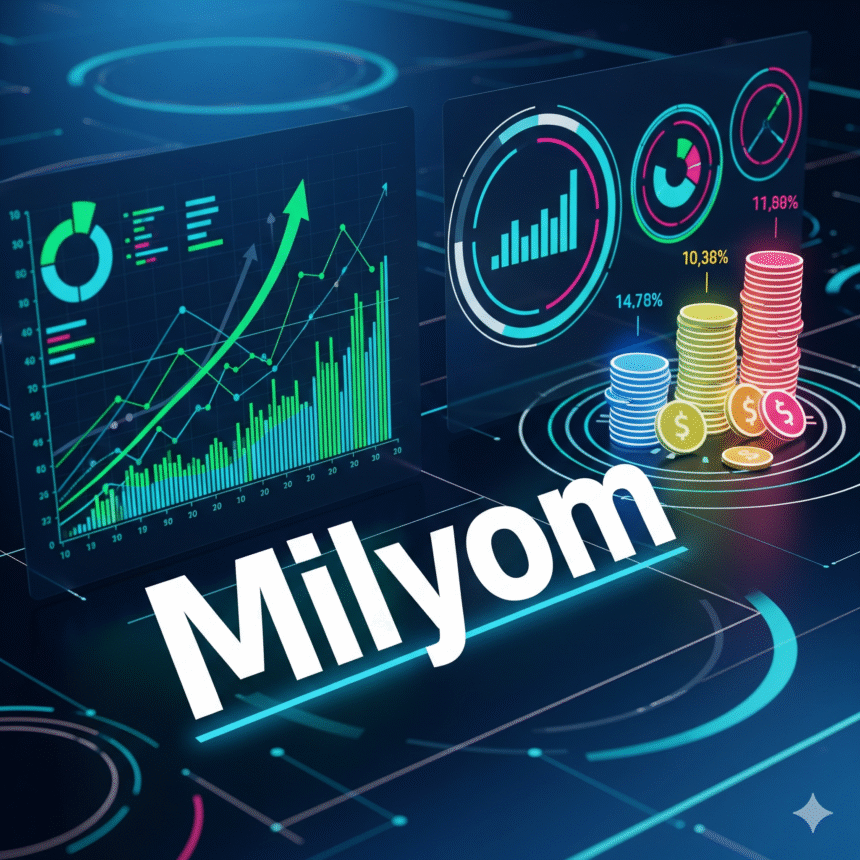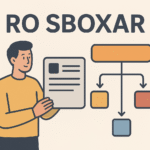Introduction to Milyom
When you hear the term Milyom, it might sound new or even unusual. Yet, it has started to appear in conversations across business circles, technology discussions, and even cultural exchanges. But what exactly is Milyom? At its simplest, Milyom represents an innovative approach—whether in digital platforms, business ideas, or lifestyle solutions—that’s designed to bring simplicity to complex problems.
The growing curiosity around Milyom comes from the way it’s being positioned. Instead of being viewed as just another passing idea, Milyom is gaining recognition for its potential to create meaningful impact. People are beginning to ask questions, businesses are starting to look at how it fits into their strategies, and communities are considering its benefits.
Why People Are Talking About Milyom
Conversations about Milyom are not random. They come from the fact that Milyom addresses issues people already care about. For instance, many industries are looking for smarter, faster, and more reliable solutions. Milyom fits into that desire by offering a structured way to think differently.
Additionally, Milyom has sparked interest because of its adaptability. It does not stick to one rigid form; instead, it adapts depending on the need. For some, it may represent a digital tool. For others, it could serve as a concept for improving workflow or personal productivity. This flexibility is one of the main reasons it’s becoming a popular topic of discussion.
The Origins of Milyom
To understand Milyom, it’s helpful to look at its background. The term itself might not have a long history, but its roots lie in addressing modern-day challenges. Whether in technology, communication, or lifestyle practices, Milyom emerges as a response to growing complexity.
The origin of Milyom also reflects the current trend of innovation driven by necessity. People create solutions when they encounter problems, and Milyom appears to be one of those solutions. Its rise shows that society is constantly searching for better ways to function—ways that are both practical and efficient.
Milyom in Everyday Life
What makes Milyom truly fascinating is how it fits into daily life. It’s not limited to corporate spaces or academic theories. For instance, someone might use a Milyom-based tool to manage personal tasks, while another person may apply its principles in decision-making.
The everyday relevance of Milyom proves that it’s not reserved for experts. Anyone willing to adopt its approach can gain benefits. Whether you are a student, a business owner, or simply someone looking to make things smoother, Milyom provides room to improve how you operate.
The Business Side of Milyom
Businesses are always searching for approaches that reduce costs, improve efficiency, and keep teams motivated. Milyom is being considered as one such approach. By applying its principles, businesses can streamline operations, improve communication, and create more value for customers.
Startups, in particular, seem to find Milyom attractive. Unlike traditional models that require years to prove effective, Milyom offers something more immediate. It allows businesses to test, adapt, and scale without unnecessary delays. This agility makes it appealing in competitive markets.

Technology Meets Milyom
One of the strongest areas where Milyom is gaining ground is technology. With digital platforms expanding rapidly, new tools need guiding frameworks. Milyom provides that. It helps shape how digital products are designed, how they function, and how people interact with them.
For example, imagine an app that doesn’t just give results but guides users with clear steps, reducing confusion. That’s Milyom in action. It blends functionality with clarity, making technology feel less overwhelming and more approachable.
Milyom as a Cultural Idea
Beyond business and technology, Milyom is becoming a cultural idea. Communities that adopt Milyom-inspired thinking often find themselves more collaborative and innovative. This is because Milyom promotes simplicity without reducing effectiveness.
In culture, ideas that encourage collaboration tend to spread quickly. Milyom fits well in this space, as it gives people a way to connect around shared values—efficiency, clarity, and meaningful results. In this sense, it’s as much a cultural shift as it is a practical tool.
The Strengths of Milyom
Every concept has strengths that make it appealing. In the case of Milyom, one clear strength is its flexibility. It doesn’t box itself into one use case, which means it can be applied across industries and lifestyles.
Another strength is simplicity. While many modern systems are complicated, Milyom emphasizes clarity. This focus makes it more approachable for people who may not be experts but still want effective solutions. Together, these strengths explain why interest in Milyom keeps rising.
Challenges Facing Milyom
Of course, no idea is perfect, and Milyom has its challenges. One of the main issues is awareness. Since the concept is relatively new, many people still don’t fully understand what it means or how to apply it. This lack of understanding can slow down adoption.
Another challenge comes from competition. In today’s world, new solutions appear almost daily. For Milyom to stand out, it must continue proving its value. That means showing real results, whether in business, technology, or culture. Without consistent outcomes, it risks being overlooked.
Practical Applications of Milyom
When discussing concepts like Milyom, people often ask, “How can I use this in real life?” The good news is that Milyom isn’t locked into theory; it already has practical uses. For instance, professionals are applying Milyom principles in project management. By simplifying tasks and breaking them into actionable steps, teams are able to work faster without losing quality.
In education, Milyom has potential too. Teachers and trainers can use its structured approach to explain complex topics in a way that feels manageable. Learners benefit because they’re not overwhelmed, and knowledge is absorbed more effectively. This shows that Milyom isn’t limited to one field—it adapts to different needs.
Milyom and Innovation
Innovation thrives on fresh thinking, and this is where Milyom becomes especially useful. It doesn’t rely on long-standing traditions but instead embraces change. When applied to innovation, Milyom gives creators a framework to test bold ideas without unnecessary complications.
Many industries already recognize that innovation often stalls because processes are too rigid. By applying Milyom, organizations open the door to experimentation. This makes it easier to introduce new products, improve services, or adopt smarter ways of working. In short, Milyom supports innovation by creating an environment where ideas can move from imagination to reality.
The Future Potential of Milyom
Looking ahead, the potential of Milyom seems promising. As businesses, educators, and communities continue to seek efficiency, they’ll likely find more ways to use it. Over time, Milyom could evolve into a recognized methodology, much like popular frameworks that dominate industries today.
The key will be awareness. If more people understand what Milyom is and how it works, its adoption could grow rapidly. With the right communication, Milyom might soon become a standard part of discussions in technology, business, and even lifestyle improvement.
How to Get Started with Milyom
For anyone curious about using Milyom, the first step is simple: start small. You don’t need a massive plan to see results. Begin by applying Milyom’s principle of clarity to a single task. Break it down, make it manageable, and see how the outcome improves.
Once comfortable, you can expand its use. For example, teams could apply Milyom to meetings by creating straightforward agendas and outcomes. Families could use it in household planning. The beauty of Milyom is that it grows with your confidence in applying it.
Why Trust Matters in Milyom
One reason Milyom has the potential to succeed long-term is its focus on trust. Any concept that asks people to change how they think or work must show it’s reliable. Milyom builds that trust by delivering results that are visible and meaningful.
Trust also grows when communities share their positive experiences. If businesses and individuals continue to report real benefits, the credibility of Milyom will strengthen. This trust factor is critical because it separates lasting frameworks from short-lived trends.
Building Communities Around Milyom
Another interesting aspect is how Milyom fosters communities. When people adopt the idea, they often feel the urge to share it with others. This sharing creates groups—whether online or offline—where people exchange tips, success stories, and advice.
These communities help Milyom grow. They also give users the confidence that they’re not experimenting alone. By building a network of support, Milyom transforms from a concept into a movement, driven by people who genuinely believe in its benefits.
Milyom and Personal Growth
While much has been said about its professional use, Milyom also has value on a personal level. People looking to improve their daily routines can benefit from its emphasis on simplicity and clarity. For instance, someone managing multiple responsibilities might apply Milyom to prioritize tasks without feeling overwhelmed.
Personal growth often requires practical tools, and Milyom offers exactly that. By applying it consistently, individuals can reduce stress, improve focus, and achieve better results. Over time, these small changes add up to significant improvements in lifestyle and mindset.
Potential Limitations of Milyom
Even though Milyom has many strengths, it’s important to acknowledge its limitations. For one, it may not fit every situation. Some industries or tasks are so complex that they require specialized systems. In such cases, Milyom might serve as a complement rather than a full solution.
Another limitation is consistency. Like any framework, Milyom only works if it’s applied regularly. If people treat it as a one-time fix, they may not see long-term benefits. Recognizing these limitations ensures that expectations remain realistic.
Conclusion: Why Milyom Matters Today
Milyom may be new, but its influence is already clear. By promoting clarity, flexibility, and trust, it addresses challenges that people across industries face daily. Businesses see opportunities to improve efficiency, educators find new teaching strategies, and individuals gain tools for personal growth.
The future of Milyom depends on how widely it’s adopted and how consistently it’s applied. If it continues to prove its value, it could become a lasting part of professional and personal practices worldwide. For now, what stands out is simple: Milyom matters because it makes life and work a little clearer, a little smoother, and a lot more effective.







